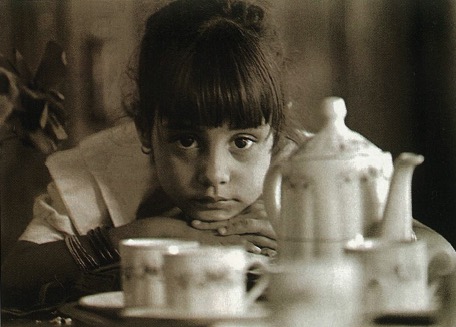By Ashok Sharma, Associated Press
Mccluskieganj, a hamlet of decrepit brick and neglected gardens, is inhabited by people whose mixture of identities has left them uncertain of a place in their homeland ever since Indian independence. Timothy McCluskie, of Indo-Irish parentage, carved this niche for himself and others like him in the 1930s when the Indian national movement accelerated. Those who feared they were neither British enough to emigrate to Britain nor Indian enough to stay welcomed the enclave.
McCluskie sought out this spot in the cool hills 625 miles east of New Delhi and named it McCluskieganj. “Ganj” means alley in Urdu, but translates roughly to “neighborhood.” Nearly 400 families of Anglo-Indians, a catchall phrase in India for everyone of mixed European and Indian ancestry, had settled here by the time the British left India’s shores in 1947. In McCluskieganj’s heyday “We had dance parties, picnics and a lot of social gatherings,” recalls D. R. Cameron, a 68-year-old retired army captain. Their status and fortune have declined in the 50 years India has been independent. Only 20 Anglo-Indian families, mostly elderly, are left in McCluskieganj.
Homes are deserted. Weekly services at the Anglican and Catholic churches draw only a few worshipers. At independence, panic gripped many Anglo-Indians who feared that the favors they had enjoyed under the British would end. Young Anglo-Indians migrated to Britain, Australia and Canada. “Nationwide, the number of Anglo-Indians has dwindled from 300,000 in 1947 to 150,000,” said Hedwig Michael Rego, who represents them in India’s national parliament. Government job quotas for Anglo-Indians have been abandoned, and legislative quotas end in three years. “Who will hear our voice then?” Rego said.
Despite their pale skin, “the British treated us as third class citizens,” said Cameron. Indians treated them with contempt. “We saw in them the remnants of the British Raj,” said Deepak Singh, an Indian schoolteacher in McCluskieganj. In that limbo, many families clung to their ties to the colonial rulers, speaking only English at home, striving to mimic the lifestyle of upper class Brits. Their English guaranteed them jobs in the British-run civil service and military.
Now, few know Indian languages well enough to compete in the job market, Rego said. Cameron said Anglo-Indians depended on government jobs, failing to develop as entrepreneurs. A.K. Raphael, a 78-year-old retired police officer, blames it all on independence. “India has gone down hill since independence. Prime Minister Jawaharlal Nehru had very good ideas, but most of them have failed.”1Ú4


